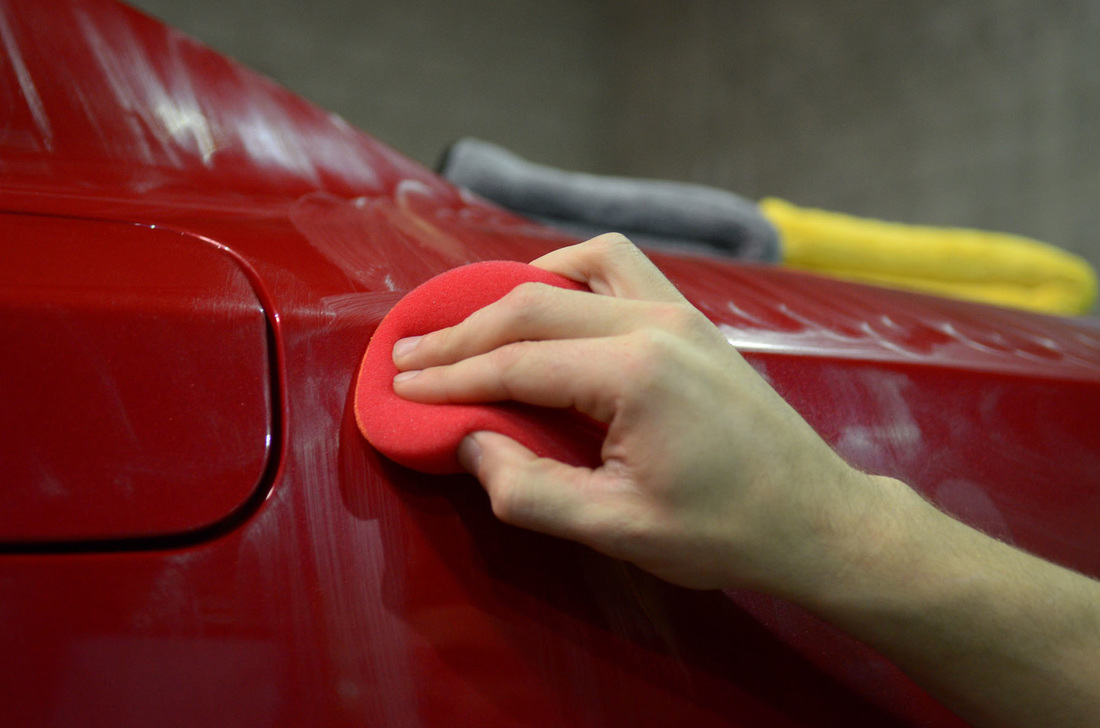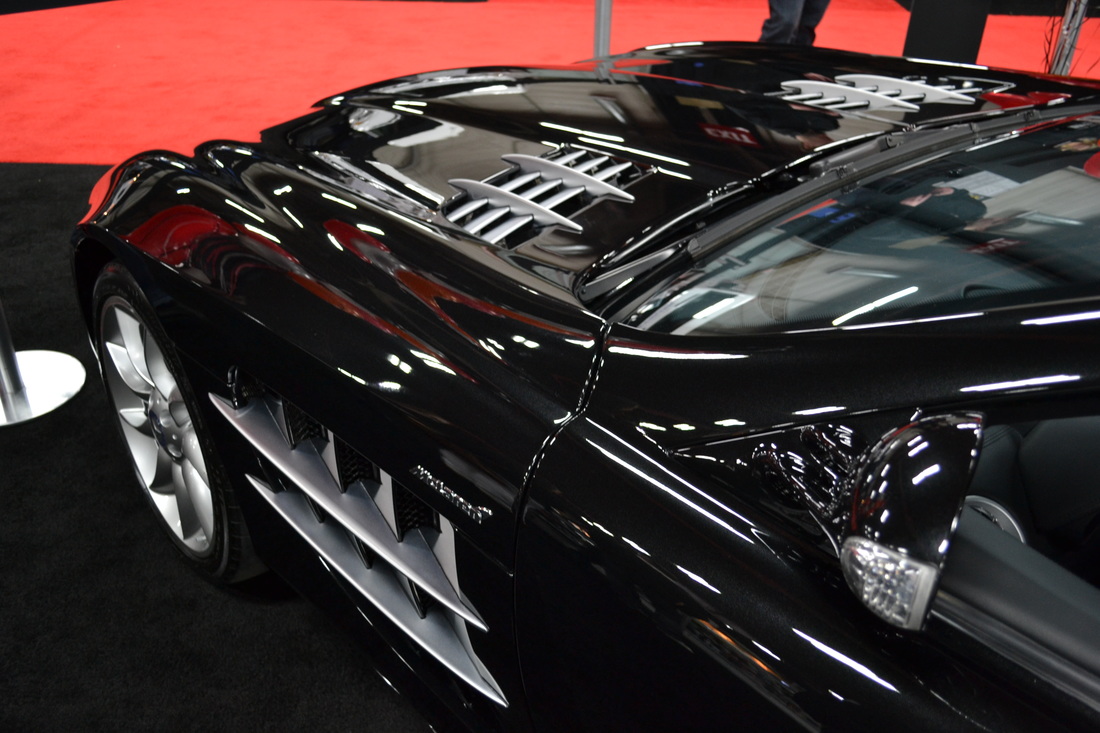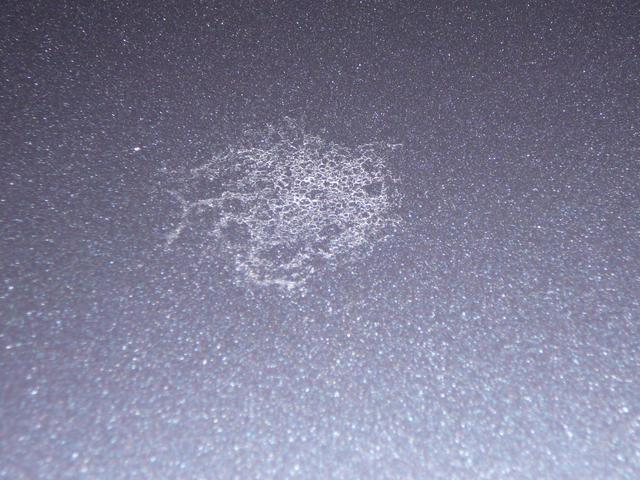Is Paint Protection necessary?
One of the biggest debate in the automotive world is should a brand new car get paint protection? Especially the huge popularity of ceramic quartz nano coating these days.
To us as detailers, of course we would say yes but it all comes down to your purpose of your car, your car wash and maintenance schedule and whether it is a prestigious show car garage queen or simple everyday car.
To us as detailers, of course we would say yes but it all comes down to your purpose of your car, your car wash and maintenance schedule and whether it is a prestigious show car garage queen or simple everyday car.
Paint Protection comes in different forms
Paint Protection comes in three main different forms. Wax, Sealant, and Ceramic Quartz Nano Coating and all three of them are completely different to each other.
Wax
Waxes comes in liquid format or paste format. The main advantage of wax is the warmth and gloss it provides. It's almost unbeatable compared to sealants and coatings.
There are two different kinds of waxes however. There is carnauba and synthetic wax. The main difference would be how they are made. Carnauba is a considered as natural wax and synthetic is made with chemicals. Carnauba based paste wax would be the best wax you could buy and it usually provides a superior results and longevity compared to synthetic waxes. Waxes would last about 3 months and it would require reapplication. It would be perfect for car enthusiasts that loves to wash and wax their car every month or so!
Sealant
Sealants are well known to last longer and providing a better protection solution as compared to Wax. Comparing the finish of a sealant and natural wax, natural wax outperforms sealants from its deep warmth and gloss. Back in the days, sealants are considered a ground-breaking technology until lately when ceramic quartz coatings are introduced.
However there are two kinds of sealants:
Polymer Sealant
Vast majority of the sealants you can find on the shelf of your local auto store are usually a polymer sealant. A polymer sealant is made up of tens of thousands of synthetic particles that are linked together. When a polymer sealant cures, it is basically forms a 'plastic' shield on the vehicle's paintwork - glossy and slick. The best kept secret in the detailing world would be applying natural wax on top of a polymer sealant for a extremely deep and glossy finish.
Note - Many dealerships in Australia, that sell a form of paint protection is more then likely a Polymer Sealant when you buy a brand new car.
PTFE or Teflon based Sealant
PTFE based sealants works exactly like a Polymer sealant, but with a different kind of polymer. You'll find non-stick PTFE coating for pans and other cookware. It is very non-reactive, partly because of the strength of the carbon–fluorine bonds. Research shows that PTFE technology works excellent on car's paintwork and it fills or 'hide' paint imperfections well for those who are not going through an extensive paint correction but rather wants it to look good for a day or a pre-sale presentation to potential buyers. Although it generally won't last as long as polymer sealant, it provides a glossier finish as compared to polymer sealants and are generally more expensive compared to polymer sealants.
PTFE sealants are generally more expensive than polymer sealants. A good sealant should last up to 6 months.
Wax
Waxes comes in liquid format or paste format. The main advantage of wax is the warmth and gloss it provides. It's almost unbeatable compared to sealants and coatings.
There are two different kinds of waxes however. There is carnauba and synthetic wax. The main difference would be how they are made. Carnauba is a considered as natural wax and synthetic is made with chemicals. Carnauba based paste wax would be the best wax you could buy and it usually provides a superior results and longevity compared to synthetic waxes. Waxes would last about 3 months and it would require reapplication. It would be perfect for car enthusiasts that loves to wash and wax their car every month or so!
Sealant
Sealants are well known to last longer and providing a better protection solution as compared to Wax. Comparing the finish of a sealant and natural wax, natural wax outperforms sealants from its deep warmth and gloss. Back in the days, sealants are considered a ground-breaking technology until lately when ceramic quartz coatings are introduced.
However there are two kinds of sealants:
Polymer Sealant
Vast majority of the sealants you can find on the shelf of your local auto store are usually a polymer sealant. A polymer sealant is made up of tens of thousands of synthetic particles that are linked together. When a polymer sealant cures, it is basically forms a 'plastic' shield on the vehicle's paintwork - glossy and slick. The best kept secret in the detailing world would be applying natural wax on top of a polymer sealant for a extremely deep and glossy finish.
Note - Many dealerships in Australia, that sell a form of paint protection is more then likely a Polymer Sealant when you buy a brand new car.
PTFE or Teflon based Sealant
PTFE based sealants works exactly like a Polymer sealant, but with a different kind of polymer. You'll find non-stick PTFE coating for pans and other cookware. It is very non-reactive, partly because of the strength of the carbon–fluorine bonds. Research shows that PTFE technology works excellent on car's paintwork and it fills or 'hide' paint imperfections well for those who are not going through an extensive paint correction but rather wants it to look good for a day or a pre-sale presentation to potential buyers. Although it generally won't last as long as polymer sealant, it provides a glossier finish as compared to polymer sealants and are generally more expensive compared to polymer sealants.
PTFE sealants are generally more expensive than polymer sealants. A good sealant should last up to 6 months.
Ceramic Quartz Coating
Ceramic quartz coating, or also known as a nano coating, glass coating etc is a ground breaking improvement in the automotive industry, it has existed for many years with a recent spike in popularity and brands in the past few years. It uses Silicon Dioxide or SiO2 (aka Ceramic/Quartz/Liquid Glass) that cures into a hard glass that provides superior protection. It severely outperforms sealants in every single way. The 4 main advantage of a coating is: Gloss, Longevity, Physical Resistance and Hydrophobicity. A good coating applied properly by a detailer with appropriate prep work, it could last anywhere from 2 to 5 years and it eliminates the need to wax or polish your car again. Did we mention it has self-washing effects from the hydrophobicity in the coating. Even so, natural waxes finishes better than a coating due to its carnauba content. Although there are plenty of coatings to choose from, there are two types of coating: Consumer and Professional-only coating.
Consumer Coating
Due to coating's complexity of application, we do advise car owner's to do extensive research about coatings and how to apply them, because once the coating is applied and cured, it can be only be removed via abrasion only. A consumer coating is a simplified and easier to apply version of a professional-only coating, targeted to weekend warriors and car enthusiast that are keen to apply a coating by themselves. A consumer coating usually have a lot less SiO2 content, more user-friendly, a lot easier to apply and usually a shorter lifespan as compared to professional-only coating.
Professional-Only Coating
Professional-only coating are usually coatings that are not available to purchase to the public and are exclusively available to selected detailers. Selected detailers usually have to attend a training session to properly learn how to apply the product professionally to prevent any errors and quality control. Each individual professional-only coating has its own unique way of preparation process to optimise the best results from each application and usually paint correction is needed to remove existing imperfections such as swirl marks and minor scratches. The main difference between a consumer version and a professional-only coating are mainly the SiO2 content and the solvent a coating carries. The higher the SiO2 content is, the more difficult it is to apply and precautions has to be taken into account.
Pro Tip: SiO2 percentage has becoming a marketing hype in the industry. So if you see a consumer coating claiming to contain 80% or more SiO2 content in a single part and you feel that it's too good to be true? Then it probably is. A Professional-only coating usually contains anywhere from 75% to 85% SiO2 Content.
Ceramic quartz coating, or also known as a nano coating, glass coating etc is a ground breaking improvement in the automotive industry, it has existed for many years with a recent spike in popularity and brands in the past few years. It uses Silicon Dioxide or SiO2 (aka Ceramic/Quartz/Liquid Glass) that cures into a hard glass that provides superior protection. It severely outperforms sealants in every single way. The 4 main advantage of a coating is: Gloss, Longevity, Physical Resistance and Hydrophobicity. A good coating applied properly by a detailer with appropriate prep work, it could last anywhere from 2 to 5 years and it eliminates the need to wax or polish your car again. Did we mention it has self-washing effects from the hydrophobicity in the coating. Even so, natural waxes finishes better than a coating due to its carnauba content. Although there are plenty of coatings to choose from, there are two types of coating: Consumer and Professional-only coating.
Consumer Coating
Due to coating's complexity of application, we do advise car owner's to do extensive research about coatings and how to apply them, because once the coating is applied and cured, it can be only be removed via abrasion only. A consumer coating is a simplified and easier to apply version of a professional-only coating, targeted to weekend warriors and car enthusiast that are keen to apply a coating by themselves. A consumer coating usually have a lot less SiO2 content, more user-friendly, a lot easier to apply and usually a shorter lifespan as compared to professional-only coating.
Professional-Only Coating
Professional-only coating are usually coatings that are not available to purchase to the public and are exclusively available to selected detailers. Selected detailers usually have to attend a training session to properly learn how to apply the product professionally to prevent any errors and quality control. Each individual professional-only coating has its own unique way of preparation process to optimise the best results from each application and usually paint correction is needed to remove existing imperfections such as swirl marks and minor scratches. The main difference between a consumer version and a professional-only coating are mainly the SiO2 content and the solvent a coating carries. The higher the SiO2 content is, the more difficult it is to apply and precautions has to be taken into account.
Pro Tip: SiO2 percentage has becoming a marketing hype in the industry. So if you see a consumer coating claiming to contain 80% or more SiO2 content in a single part and you feel that it's too good to be true? Then it probably is. A Professional-only coating usually contains anywhere from 75% to 85% SiO2 Content.
What happens to a car without paint protection?
Although modern clear coats are designed to resist UV and some light blemishes, especially for European cars and BMW's CeramiClear. It is still recommended to get paint protection in any format due to Australia's strong UV and harsh weather conditions. We have seen clear coat failures from the strong UV and bird/bat poo permanently damaged on a fairly new car due to lack of paint protection.
Conclusion
For cars that are driven in a weekly or monthly basis, we would recommend applying a carnauba paste wax once a month and wash in a weekly or fortnightly basis.
For cars that are driven daily, we would recommend getting ceramic quartz coating professionally applied by a reputable detailer.
For car enthusiasts, we recommend a polymer sealant or even a consumer coating for ease of maintenance.
For any questions regards to car detailing or paint protection, feel free to contact us by clicking here.
For cars that are driven daily, we would recommend getting ceramic quartz coating professionally applied by a reputable detailer.
For car enthusiasts, we recommend a polymer sealant or even a consumer coating for ease of maintenance.
For any questions regards to car detailing or paint protection, feel free to contact us by clicking here.





 RSS Feed
RSS Feed
